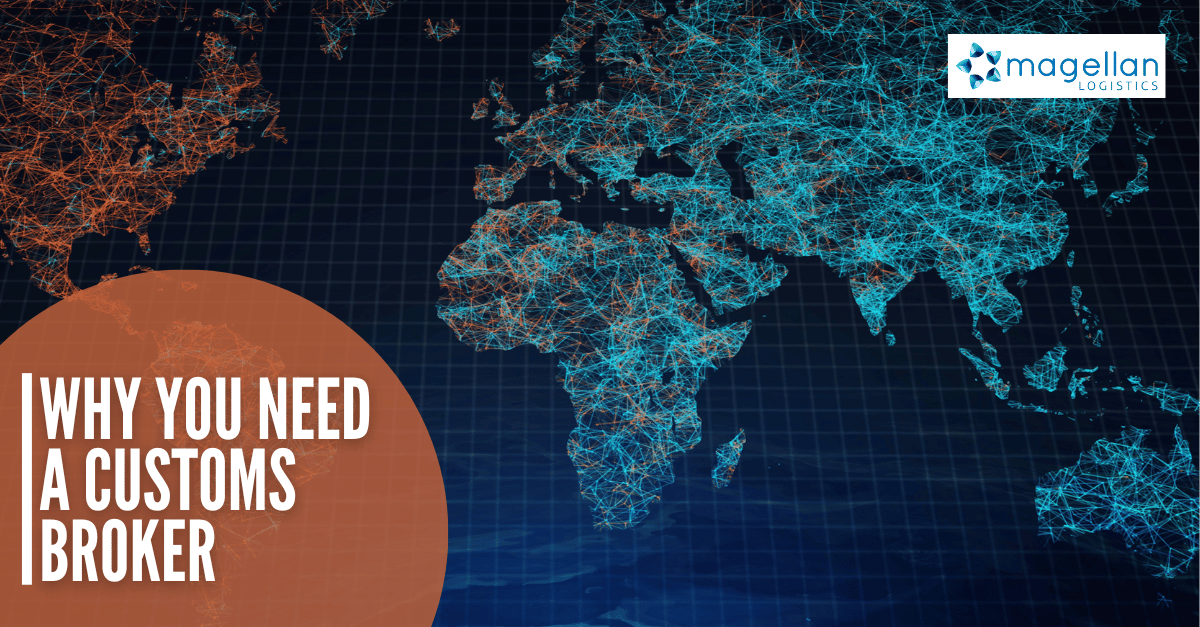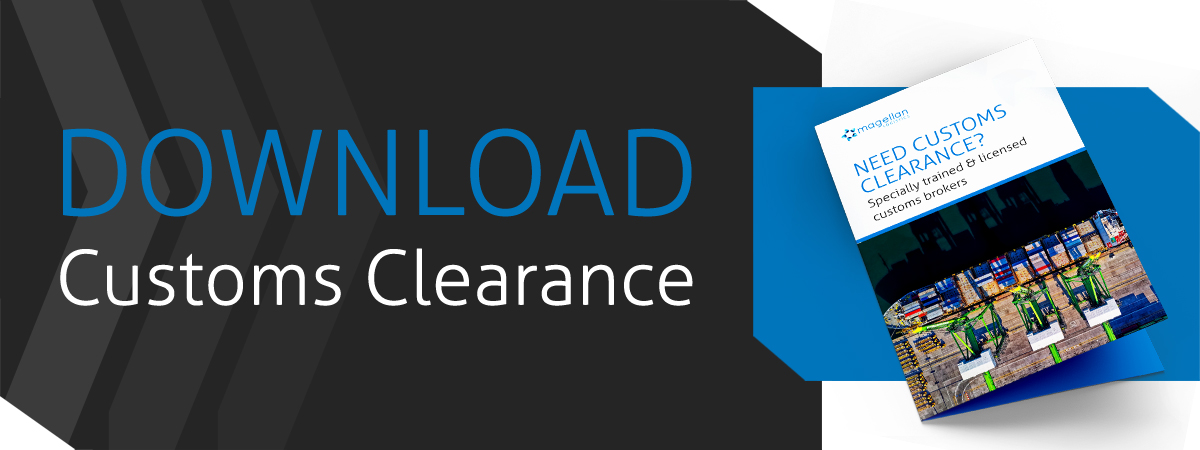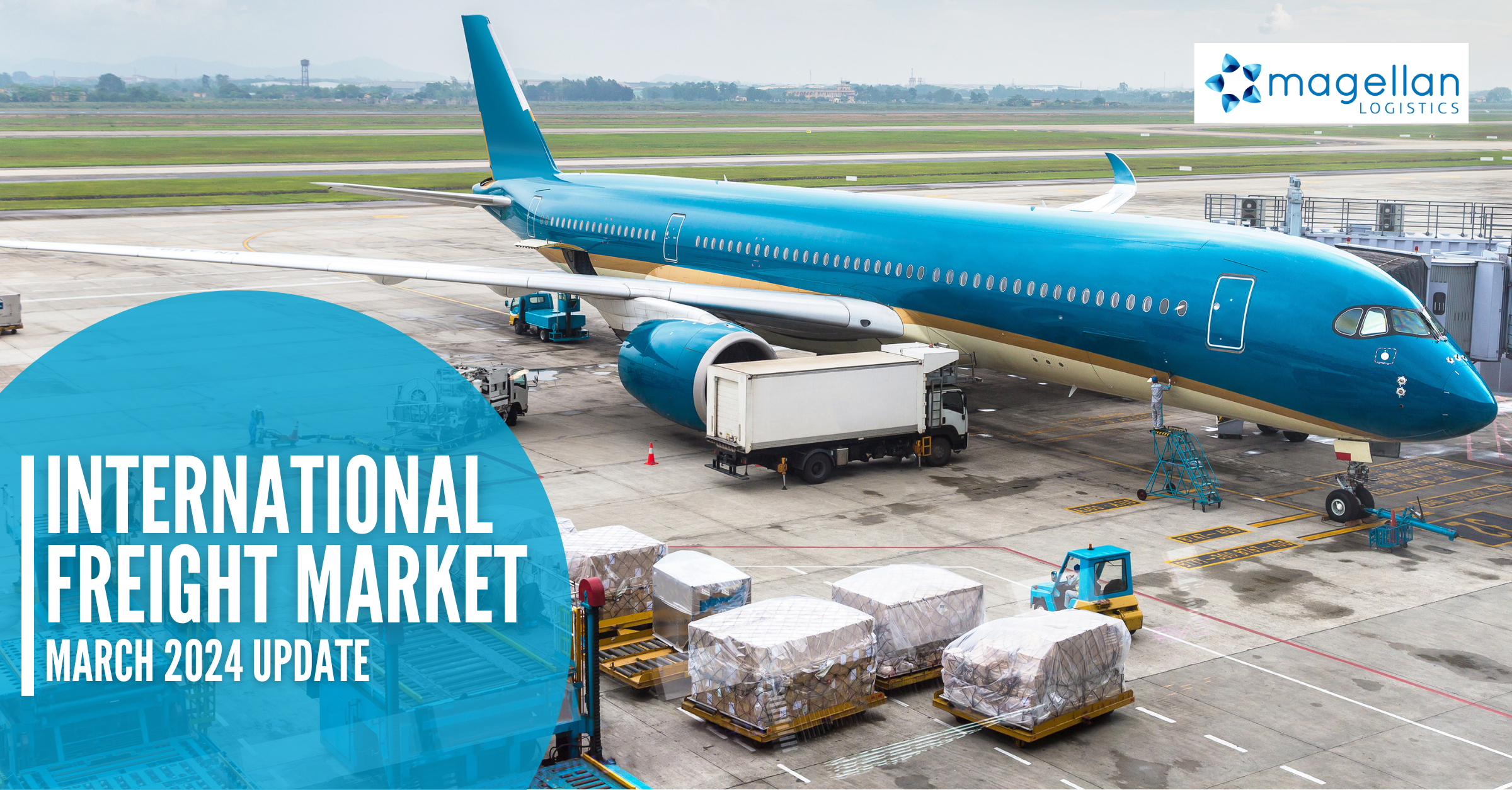Customs brokers – essential to your import/export operations
The customs broker plays a vital role in the smooth and efficient movement of goods across international borders, making them indispensable to global supply chains. With their expertise in navigating the complexities of customs regulations, duties, and taxes, businesses can save time, minimise risks, and focus on their core operations.
Navigating complex Customs regulations
Brokers excel in navigating the intricacies of customs regulations, thanks to their in-depth understanding of international trade rules. By staying updated on ever-changing customs regulations, brokers help businesses avoid potential legal issues and maintain a positive reputation in the global trading community. This level of expertise is invaluable for companies that require additional resources or knowledge to navigate customs processes independently.
Understanding of the legal requirements
Each country has its customs, regulations, and rules that govern the import and export of goods. Understanding the legislation and regulations of the country you are dealing with is crucial.
Classification of goods
Goods are classified according to the Harmonized System (HS) of tariff nomenclature. This international system enables customs departments worldwide to identify and categorise goods for tax and regulatory purposes. Misclassification could result in incorrect duty payments or regulatory penalties.
Determination of duties and taxes
Once goods are correctly classified, the broker calculates the applicable taxes, duties, and excises that must be paid. Various Free Trade Agreements, by-laws and concessions, potentially eliminating customs duties, must also be considered.
Documentation
This involves the preparation of paperwork, including a bill of lading, commercial invoice, packing list, and customs declaration. Proper documentation is essential to prove the imported goods’ value, origin, and nature.
Customs import declarations/entries
A customs entry/import declaration must be lodged, officially declaring specific details about the imported goods. Lodgement typically requires submitting data to the respective country’s customs and border protection agency.
Risk assessment and management
This entails understanding the risks associated with non-compliance, such as penalties or seizure of goods, and effectively mitigating these risks.
Biosecurity concerns
Another critical aspect of a broker’s role is their deep understanding of DAFF (biosecurity ) requirements. Many commodities have biosecurity restrictions which may involve import permit requirements, health certificates or manufacturing declarations and potentially require inspections/treatments at the destination. Your customs broker can advise on whether your products will require treatment at origin, streamlining biosecurity clearance at the destination.
Additionally, all products delivered to a rural destination in Australia will require biosecurity “tailgate” inspection, which your customs broker can facilitate.
The annual BMSB season in Australia runs from September to April and brings with it many additional biosecurity requirements, including mandatory fumigation of certain goods. Brokers have the required expertise to navigate you through this process.
In addition to managing logistics and navigating complex laws, customs brokers often provide valuable advice to their clients. This advice can range from guidance on minimising import costs to suggestions for avoiding potential delays or seizure of goods. They can also propose ways to optimise supply chain processes, resulting in smoother and more cost-effective operations.
Smooth communication and adherence to regulations are paramount in international trade. As intermediaries between importers or exporters and government agencies, customs brokers ensure these crucial aspects are correctly handled. Their role as liaisons guarantees that regulatory requirements are met without any hindrance.
Lastly, brokers are adept at handling potential disputes and issues during customs clearance. These may include disagreements over duty payments or conflicts regarding the classification of goods. In such situations, their expertise proves invaluable in resolving these issues effectively and efficiently. It is important to note that while brokers facilitate the process, the ultimate legal responsibility for the declaration rests with the importer or exporter. It is also worth mentioning that specific tasks and duties may vary depending on local regulations and practices.
Duties and taxes: Accurate calculation and timely payment
Goods classification
As previously mentioned, goods undergo classification based on the internationally standardised Harmonized System (HS), which assigns names and numbers to traded products. This classification code is the initial step in determining the applicable duties and taxes for the goods.
Goods valuation
A customs broker is responsible for accurately declaring the value of goods to customs authorities. The declared value serves as the basis for calculating duties and taxes. Various valuation methods are employed, with legislation determining the inclusion/exclusion of various charges.
Importance of Customs Brokers in Managing Duties and Taxes
Calculating duties and paying duties and taxes are crucial in customs clearance. With the complexity involved, customs brokers are indispensable in ensuring businesses maintain cost efficiency in their supply chains and avoid penalties for underpayment or misclassification of goods.
Duties determination
A broker uses these details to calculate the relevant duties once goods are classified and valued. These calculations may involve applying a percentage (ad valorem duties), a specific amount per unit (specific duties), or a combination of both (compound duties).
Tax calculation
In addition to duties, customs brokers also calculate other taxes that may be imposed on imports, such as Goods and Services Tax (GST) or Value-Added Tax (VAT).
Duties and taxes payment
Upon calculating the duties and taxes, customs brokers can facilitate payment on behalf of the importer. A deferred payment system is available to importers with Australian Trusted Trader accreditation.
Ensuring accuracy
Brokers prioritise accuracy in all their calculations and payments. Any inaccuracies can lead to penalties, delays, or even the seizure of goods.
Customs brokers rely on specialised knowledge and expertise to navigate these complex processes. They must stay updated on their respective countries’ changing tax rates, duty rates, and regulations and are required to complete regular studies to ensure their knowledge base remains current. Furthermore, brokers frequently guide clients on strategies for minimising duties and taxes, such as leveraging preferential duty rates through Free Trade Agreements, duty drawback programs, or utilising bonded warehousing.
Note – Unlock the secrets of warehousing with our in-depth blog: “What is Warehousing?”
Risk assessment and compliance
Risk assessment and compliance are vital components of the customs process, particularly given the intricate regulatory landscape of international trade. Adhering to the regulations is crucial for upholding a business’s reputation and avoiding legal complications. Customs brokers analyse the risks associated with importing or exporting goods and ensure that importers and exporters adhere to all relevant laws and regulations. In doing so, they identify potential violations, such as restricted or prohibited items and provide clients with guidance on mitigating these risks.
Each country has its own customs laws and regulations. Brokers must comprehensively understand these rules and stay updated on any changes or updates. They must also be aware of international trade agreements that impact duty rates or compliance requirements.
Brokers must stay updated with the ever-changing landscape of laws, regulations, and trade agreements that impact customs processes. They must also participate in continuing education programs or subscribe to industry updates to ensure they have the most current information, enabling them to provide accurate advice and effectively handle procedures.
In addition to the procedural aspects, brokers play a critical advisory role. They advise their clients on compliance matters, clarifying their responsibilities under customs law. They also recommend strategies that can help minimise duties and taxes while staying within the boundaries of the law.
A customs broker also establishes internal controls and conducts audits to maintain a high standard of accuracy and compliance. These controls help identify errors or compliance issues before documents are submitted to customs. Brokers may also conduct internal audits to proactively identify potential problems or areas of risk, thereby reducing the likelihood of disruptions in the customs process.
Finally, a customs broker can assist in resolving compliance issues such as a dispute over classification or an audit by customs authorities. They do so by providing the necessary documentation and communicating with customs officials on behalf of their clients. A broker brings significant negotiation skills and legal expertise to the forefront, further exemplifying their diverse skillset.
Documentary requirements
Customs brokers must assess all documents required to clear a consignment. All necessary documents must be accurate and submitted as early as possible to avoid potential delays.
General customs documentation includes a Bill of Lading, Commercial Invoice, packing lists and packing declarations. Additional documents, such as import licences/permits, certificates of origin, treatment certificates etc., may be required depending on the commodities being cleared.
Enhancing communication with authorities
In international trade, brokers are invaluable intermediaries between businesses and customs authorities. They expertly handle all communication and negotiation on behalf of their clients, diligently submitting necessary documentation, promptly responding to inquiries, and skillfully resolving any issues that may arise during the customs clearance process. Through their effective communication with customs authorities, brokers excel in expediting the clearance process and minimising delays in the supply chain.
A customs broker dedicated to your business
In today’s intricate global trade landscape, the role of a customs broker is more crucial than ever. Their specialised knowledge and expertise in navigating customs regulations, managing duties and taxes, ensuring compliance, and facilitating communication are invaluable.
At Magellan, we take a tailored approach to our customs brokerage services, recognising that each client has unique needs. We begin by closely collaborating with our clients to understand their specific requirements deeply. We consider factors such as the type and volume of goods being imported or exported, the countries involved in the trade, and any particular goals or restrictions our clients may have.
The classification and valuation of goods are also customised to meet each client’s needs. Our comprehensive understanding of products and international trade regulations allows our brokers to explore different classification options that can reduce duties or provide guidance on acceptable methods for determining customs value.
Our brokers also offer personalised compliance and risk management plans, encompassing specific record-keeping practices, processes for reviewing and updating classification codes, and strategies for managing audits or disputes. By doing so, we help businesses stay compliant with evolving regulations while effectively addressing potential risks.
Another crucial area where we customise our service is in duty minimisation strategies. Our brokers provide advice on various methods, such as leveraging Free Trade Agreements, duty drawback programs, or bonded warehouses. Each client’s unique circumstances determine the optimal strategy.
Magellan also provides customised reporting and analytics services. Reporting is essential for businesses to track their imports and exports, monitor costs, and identify areas for improvement. Our clients have real-time access to this data through advanced software platforms, enabling more informed decision-making.
Our customs brokers at Magellan understand that different industries have varying customs requirements and challenges. For example, importing food products involves different considerations than importing electronic devices. Therefore, we offer industry-specific solutions tailored to each sector’s unique needs and challenges.
By providing these personalised solutions, brokers assist businesses in efficiently navigating the complexities of international trade. This level of customisation leads to significant time and cost savings and a reduced risk of non-compliance.
What are the risks of not using a customs broker?
Choosing to import or export without the assistance of a customs broker exposes businesses to several risks.
First and foremost, businesses that handle customs paperwork themselves face the potential for errors and subsequent clearance delays. These mistakes can result in costly hold-ups and disrupt the smooth functioning of the supply chain.
Furthermore, businesses must comprehensively understand intricate and frequently changing customs regulations. Staying updated with these complex laws can take time and increase businesses’ demands.
By engaging the services of a customs broker, businesses can effectively navigate these risks. The broker’s knowledge, expertise, and experience ensure accurate and efficient processing of shipments in compliance with regulations, creating a smoother journey for goods across borders.
___
In addition to brokerage, Magellan provides freight and logistics services to all industries, including sea freight, air freight, and the all-important digital freight portal, providing 24/7 visibility of all your shipments. Get in touch with one of our freight specialists on 1300 651 888.














